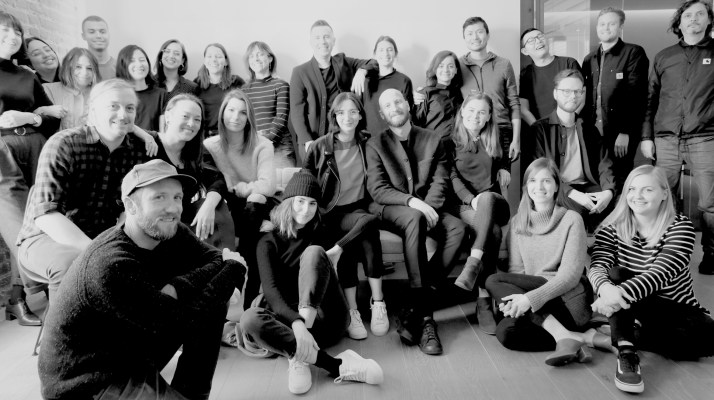Character is celebrating its 20-year anniversary this year, and this SF-based branding and design agency has a lot to be proud of. Founded by Ben Pham, Tish Evangelista, and Rishi Shourie, Character has helped startups like Doordash, Glint, Molekule, and many others, launch their companies into the world. We interviewed co-founder Ben Pham about Character’s early days, their commitment to collaborating with mission-driven founders, and why relationships define who they are and what they do as a branding firm.
On working with entrepreneurs:
“When you have an opportunity to sit in the room, hear how passionate they are, how they left a cushy job, and this is their mission, it’s inspiring. Oftentimes, it’s not financially motivated for them. It’s not about their ego. You think about that, and you’re like, “Wow, I get to be in this room with someone that’s really passionate” and we start believing in it. We have to believe in what they’re creating, and we have to believe that they’re leaving a positive impact on our culture. We want to make sure founders are contributing in a positive way. We believe in the people that we’re working with and what they’re doing.”
“The Character team was extremely creative and easy to work with, always open to exploring new ideas.” Howard Nuk, SF, Co-founder at Palm
Character’s branding philosophy:
Great brands, for us, is about relationships. It’s a long-lasting relationship, and those relationships are earned. We think of brands like a character within a story. They have a unique characteristic about them. When you have dinner parties, you’re inviting people into your home who you’re going to enjoy the next three hours drinking wine, eating food, and just talking to them. You always know who you’re going to invite and the dynamic of the room. We think about brands in the same way.
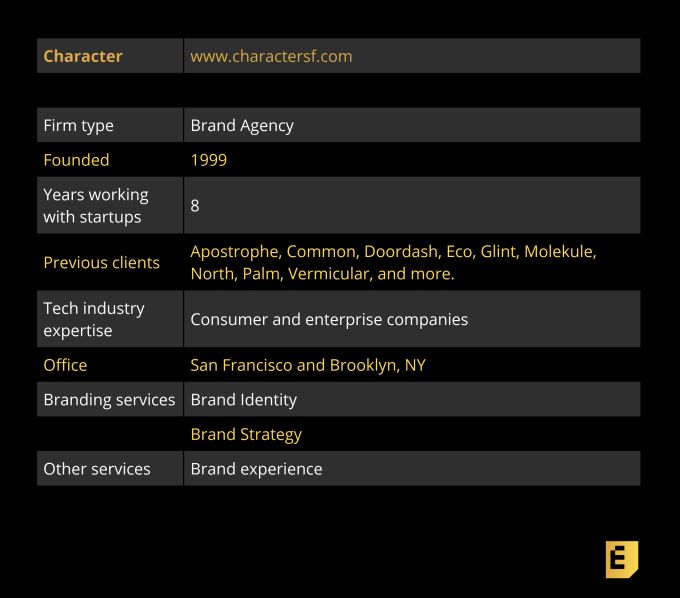
Below, you’ll find the rest of the founder reviews, the full interview, and more details like pricing and fee structures. This profile is part of our ongoing series covering startup brand designers and agencies with whom founders love to work, based on this survey and our own research. The survey is open indefinitely, so please fill it out if you haven’t already.
Interview with Character’s Creative Director & Co-Founder Ben Pham
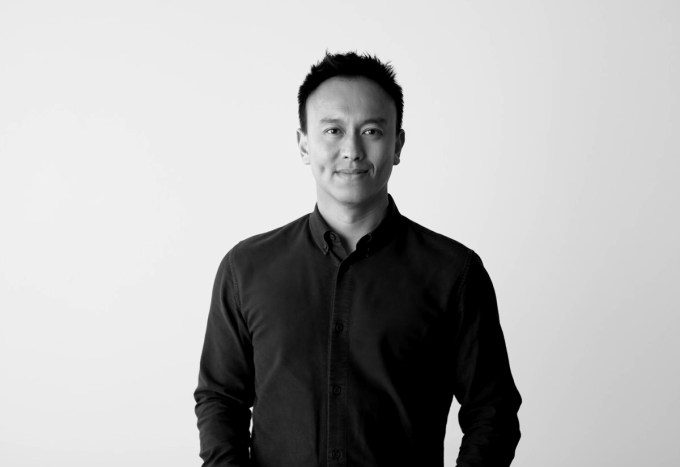
Yvonne Leow: What’s Character’s origin story? How did it get started?
Ben Pham: We started in 1999, and the reason why we started our agency was, in 1999 if you were in San Francisco, and practicing graphic design during that time, a lot of our work was coming from biotech, and technology companies. Those companies did not look like the life science, biotech companies that we see today, because they were not lifestyle companies. Tech companies, during that time, did not look like lifestyle companies. We’re like, “Well, that’s not an area that we’re really interested in.” We felt like, you know, in southern California to LA, and New York, a lot of branding agencies were focusing on consumer lifestyle brands. Fashion, apparel, interior, and nobody was really doing that in San Francisco, and that was something that we were interested in. So we were like, “Let’s do that.”
As a result, we landed our first project, which is branding for Pottery Barn Kids. That really was a very different way of thinking about branding for kids, because most time, people think of bright primary colors, jumbled type. We realized that kids are not our target audience, it’s really parents, so we made a smooth and sophisticated system. And that got a lot of attention for Character, and then we went on to work with Gary Friedman, the CEO of Restoration Hardware.
But if you look at our portfolio today, it has evolved and changed quite a bit. We’re not working with just only consumer lifestyle brands. We’re working with early-stage startups. Part of it is like we’re living in an amazing time, right? It’s an innovation renaissance. In our lifetime, there’s no way we would ever be able to replicate the time that we’re living in right now. There’s no way. It’s just, there are things that are coming out within six months that fundamentally change the way that we live. We have no idea that all these companies are doing these things, you know, and we had a look at our business, and we’re like, “It’s amazing that we’re working with Nike. Amazing that we’re working with Levi’s, and Restoration Hardware,” but those are the companies that are not thinking about products, and consumers, in the ways where we’re thinking about it in the Valley.
We decided, I think six years ago, to shift our business, to move away from those big retainer clients, to all project-based. Because of that, we started opening up to working with early-stage companies that sometimes have three founders, and that’s it. That allowed us to tap into what’s happening within our community, but more so, to start thinking about how modern brands should be created, and should be expressed, and how do they survive in this climate where brands are so visible. When we’re thinking about brand, it’s like anytime somebody’s changed a new identity, or goes through a rebrand, the whole world is talking about it. It’s newsworthy.
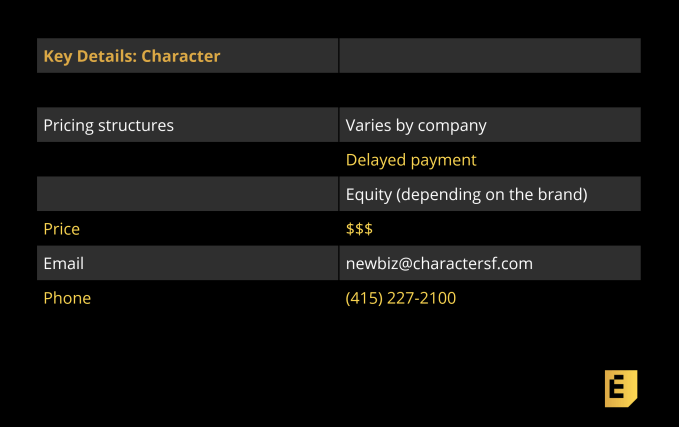
So, we shifted our business, and took advantage, and dive into the fact that we’re living through this renaissance period. Mainly, we had to rethink the way we do business. That started out with a lot of hardware companies coming to us. Dropcam being one of the first that really put us on the map, where we worked with them to create much more a lifestyle brand, rather than just a product brand, and really moving them away from home security, to more opportunities for you to be able to drop into your home. So, all of a sudden, it’s a lifestyle brand. It’s really about showing what’s happening inside your home, rather than, “I’m trying to protect my home from these threats from outside.”
Yvonne Leow: What was that transition from corporate clients to startups like for Character?
Ben Pham: I think we brought a lot of good things when we worked with Nike, Levi’s, Restoration Hardware. They are so focused on the people, either wearing the footwear, or the people that’s living in those homes, that they want the furniture to be in. We look at that, we’re like, “Well, let’s apply that same sort of thinking philosophy to hardware companies.” Hardware companies spend so much time, and effort, and passion, in creating this product, and to hear from an agency like Character, it’s like, “Yes, your product is beautiful, but that’s not what we should focus on. We should really focus on the impact that our product will have on people’s lives.”
For us, there was a huge financial impact. We walked away from these big contracts, but we knew that we could not also survive, as an agency, working with legacy brands. They don’t move as fast as some of the co-founders and early-stage companies. They don’t even imagine their consumers the same way that Airbnb will think about the consumers, and the people that they want to attract. Basically, we had to take a financial hit, and then rebuild our company because we weren’t a beacon for early-stage companies to come to us and help them launch their brand. We needed to build on one project at a time.
We had the pleasure of working with Liz Hamren, who was the Chief Marketing Officer at Dropcam and she basically started connecting us to Oculus, Facebook, and all of these amazing companies. Then we started working with those companies and then all of a sudden it was like a wall of fire for us. Today, we get at least two requests a day from new companies saying, “Hey, we’d love for you to help us think about our identity, our strategy, and how we launch our new company.” It’s a great place to be in, but at first it was really tough. We had to be okay with not being able to pay ourselves, but it paid off.
Yvonne Leow: Given how vast the design world is, what especially gets you excited about branding?
Ben Pham: I think branding allows us the opportunity to really sit with the organization and figure out who they are, from a strategic standpoint. Oftentimes, people associate branding with the visual design. We think that’s just one component of it, and I think that’s something that we really take pride in, the craft of the visual identity.
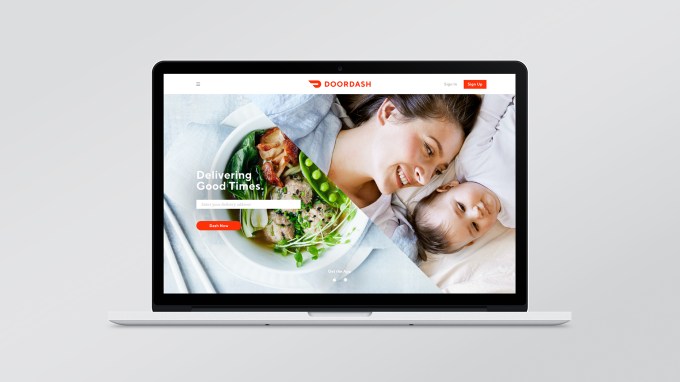
The other component is the positioning work. Tony Xu, the CEO of Doordash, had an amazing story of how he started the company, and that became the foundation for how we positioned them. Oftentimes people figure out, “What is the space that I can carve out that’s unique to myself?” Then it becomes a very strategic exercise. I think it’s absolutely important, but oftentimes authenticity will trump any sort of marketing plan.
And his story was so great. What we did was, we created the strategy around his founding story, which is that he wanted to do good for his mom. He started the company because his mom had this restaurant, and she was running this restaurant to help pay for her medical school. He’s like, “Look, I’m a smart guy, and I know all this technology, and why don’t I help my mom by connecting her with people that would eat her food, but might not necessarily want to drive to the restaurant? Or, that restaurant might be at full capacity.” So, he created this platform. That platform then became this big organization called DoorDash. For us, being able to work with him, come up with a strategy, identity, and then the third part that people overlook, especially early-stage companies, is verbal identity.
What you look like is absolutely important but what’s equally important is what you sound like. What are you saying out there to the world? So, the branding portion of it, beyond the designs, is that we get to sit in a room with founders, work through their strategy, come up with a visual identity, and then work with them on what they sound like. I mean somebody’s giving you the keys to their company, and trusting you to be able to help them. We don’t take that lightly, because that’s a significant level of trust. There are some times when we tell a company we work with, “We’ve got to change your name. The name is not right.” For them to be able to be okay with that is humbling. It’s amazing that we’re able to have these kinds of conversations with them.
Yvonne Leow: What inspired Character’s brand, as it has evolved over the years? What do you hope people think, hear, feel when they think of Character?
Ben Pham: I think it kind of goes back to our core beliefs in terms of great brands. Great brands, for us, is about relationships. It’s a long-lasting relationship, and those relationships are earned. We think of brands like a character within a story. They have a unique characteristic about them. When you have dinner parties, you’re inviting people into your home who you’re going to enjoy the next three hours drinking wine, eating food, and just talking to them. You always know who you’re going to invite and the dynamic of the room. We think about brands in the same way.
We’ve found this word “Character” which is really about people within this larger context of a story or a narrative, and that they have a story to tell. Also, character is a visual marking. You normally put it on a wall, or something like that, or a letter form to communicate. So there is the communication portion of it, and then there’s the personality, who you are inherently, that people want to be in your company. The cool thing is that we live in a world now where people appreciate brands, and brands are even punished when they’re not behaving well. We will either delete their app and go with another. So we have to have permission to be in somebody’s lives, and we have to earn it. The good brands are the ones that shepherd that really well, and they stay true to who they are
Yvonne Leow: What do you enjoy about working with founders versus a corporation? What do you see startups bringing to the branding conversation that’s new and different?
Ben Pham: When you have an opportunity to sit in the room, hear how passionate they are, how they left a cushy job, and this is their mission, it’s inspiring. Oftentimes, it’s not financially motivated for them. It’s not about their ego. You think about that, and you’re like, “Wow, I get to be in this room with someone that’s really passionate” and we start believing in it. We have to believe in what they’re creating, and we have to believe that they’re leaving a positive impact on our culture.
We want to make sure founders are contributing in a positive way. We believe in the people that we’re working with and what they’re doing. Whether or not it’s robotics, working with developmentally challenged children, or a new way of looking at what you ingest in your body, all of these companies are so mission-driven. We enjoy that. We’re not always able to do that with some of the larger brands that we work with. We enjoy working with them at a different level, but you can’t replicate passion, risk, and all these things that entrepreneurs possess.
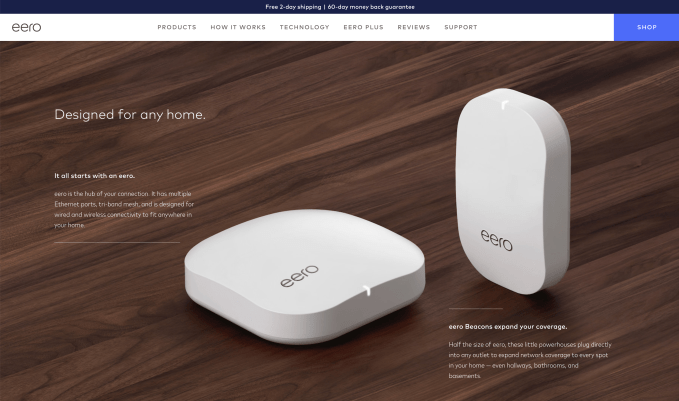
We do require a lot of early-stage clients demonstrate proof of concept for their product. We don’t want to make claims out there that disappoint people. We don’t want them to be in a queue, or pre-order, for two years, and not be able to deliver on the product. So, companies have to be at a certain level of maturity within the lifecycle of their product in order for us to be able to really help them.
Yvonne Leow: What are some common mistakes you see early-stage companies making when it comes to branding?
Ben Pham: We always ask our founders, “What do you want to be famous for?” I think that’s a really hard question for a lot of people to answer because they’re like, “Hey, I’m making this today.” When we look at the most amazing brands in the world, they’re very focused. Oftentimes, we get founders who have fallen in love with an object that they’ve been spending every night, every day, 24 hours a day, making. They forget what the purpose is behind their product, and that purpose is beyond the effort that they put in. To us, purpose is the impact they want to have on the world.
We try to uncover that as much as we can because people gravitate towards brands that have a purpose. For example, I love Airbnb. I share that same value of wanting people to belong anywhere. I love that brand. I will now always think of them because we share the same value.
Yvonne Leow: What is Character’s creative process? What can entrepreneurs expect if they work with you?
Ben Pham: They can expect honesty and we expect the same from them. We want to be able to have hard conversations with them, and for us to feel like we’re in it together. Because we ask them, “Don’t think about what you’re doing today and what you have to solve in the next 12 months. Let’s think about building a brand. What would that look like five years from now? Ten years from now?
For us, we want to be able to have real conversations, and not feel like we’re working for them. They can also expect us to be smart about how we’re positioning them, and that the design we produce for one client won’t look like the other. Like the project we did for Mix, for Garrett Camp’s new company, looks very different than what we launched for Vermicular, which is a Japanese, high-end product.
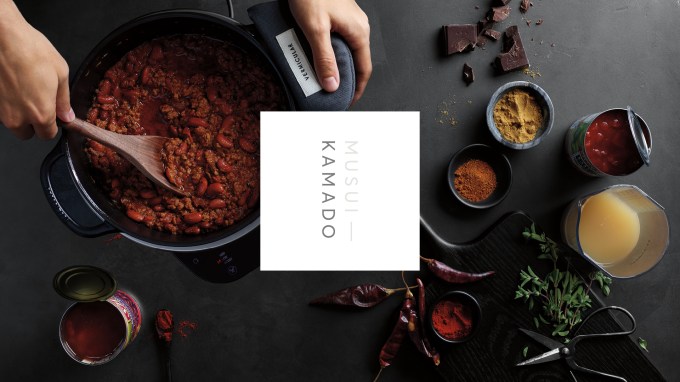
Yvonne Leow: What’s the ideal client to work with at Character?
Ben Pham: Ideally, companies that are close to a Series A. It’s not about being able to afford our fees as much as it is about having the budget to execute on our strategy and ideas. We’re telling a lot of our clients up front, “Look, we’re going to do all this great work for you, but it would be a shame if you love it and it only lives on a PowerPoint, or our logo shows up on your website.” We need to be able to deploy assets, such as photography, films, content. Content creation is so important for us. If founders are way too early within the conception of a company, they might not have a budget to execute, which is probably not the best time to work with Character. We can set that up, but there would be such a big gap in between creation and execution, that there might be some stuff that gets lost in translation.
Yvonne Leow: What’s an example of a successful client collaboration with an early-stage company
Ben Pham: I think one of our favorites is, basically, DoorDash. I can’t speak for everyone else, but for me, it was how authentic Tony is. His story was very inspiring. When I heard that story, I just wanted to tell the world about it, and I only discovered that story by talking to him. We really had to dig into his origin story and how he started the company, but because of that story of what he did for his mom, that becomes a very purposeful brand, which helped us come up with a strategy and the line of “Delivering Good.” Delivering Good worked for our audience of restaurant owners. It worked because Tony was providing them with opportunities for a broader reach, beyond what the restaurant could normally accommodate. It worked for the Dasher too. Whether or not they were trying to pay for tuition or save for a trip to Tahoe, it’s being able to give them opportunities and flexibility. And finally for the diners, the people that are eating the food, it’s delivering good in a way where they’re able to spend their time with kids, freeing up their time so they can enjoy life, rather than being in front of a stove or worrying about dinner.
I told Tony, “Don’t think of us coming up with “Delivering Good,” because basically you said it to us. We’re just making sure that everybody remembers why you’re in business.” And if you read about what’s happening today, Tony’s creating a program to support refugee restaurant owners. So, for a brand to be living and breathing the things that we worked on with them, it’s authentic. A lot of people are gravitating towards DoorDash, not because they have the most amount of restaurants available, or the quickest dashers to deliver your food, it’s because they believe in what Tony’s doing. We felt the same way. So, we look back and we’re like, “I just can’t believe we got to work with somebody like that.” For them to believe in the work that we did, and to help bring that to life.
Yvonne Leow: Does Character specialize in any specific industries or services?
Ben Pham: We focus on consumer brands, but sometimes enterprise organizations reach out to us, like Glint. Glint was recently acquired by LinkedIn, and we worked with them a long time ago. Glint was always a B2B brand, but at the same time, the decision makers at those organizations are consumers. They’re just people like you and I, so we don’t really see a big difference between B2B brands and consumer brands. Our main focus is really engaging with consumers, and building a brand that they will love, they will be loyal to, and just continue the conversation, the relationship, that they have with that brand.
Yvonne Leow: Awesome. From your perspective, how has branding evolved over the years?
Ben Pham: We’ve always believed that brand is really about the experience that you create. It’s not necessarily the logo, the color palette, and all that stuff. What has evolved is that companies go through rebrands so quickly now. It’s great from an agency standpoint like ours, but a lot of companies are now considering rebranding as a signal of change, and that’s terrible. Why do we constantly have to apologize? Why do we constantly have to pivot? We shouldn’t always use a visual thing as an indicator of change because it has to go much deeper within an organization to measure change. It feels too much like a new outfit rather than a new exercise regime.
Yvonne Leow: That’s a fascinating observation. What advice would you give to founders that have not raised a Series A yet, but are thinking about branding?
Ben Pham: This actually comes up a lot, they’re like, “We can’t afford you right now. What should we be doing?” We tell them “First, spend all your money to make sure that your product and your team is solid. Get that done. Don’t spend any money on advertising, branding, or anything. It’s really about you and your product at this moment.” What we do tell them is that, “You don’t have to be the first to the market, you can be the last. As long as you are a purposeful brand, then you have purpose in this world.”
It’s really getting early-stage companies to have a conversation with whoever their community is. It could be a white paper. It could be a blog post. It could be that Instagram assists in generating total transparency so people can empathize with you. Let’s say they need another 12 months to bring their product to market, it’s key that there isn’t radio silence. So, whatever medium they’re choosing to use, it’s important to be constantly having a conversation with your community, regardless if anybody’s listening or not.
Yvonne Leow: In two to three sentences, can you describe what you’d like Character to be known for?
Ben Pham: I want to be known for our craft. We often remind a lot of our clients that’s what they’re lacking in what they’re creating. We also want to be known for relationships. Whether or not it’s our relationship with our clients, or our clients’ relationship with their audience, it’s really about relationships.
Yvonne Leow: Last question. What’s your rate and fee structure for early-stage companies?
Ben Pham: Each client’s somewhat different. We structure it based on where they are within their growth. Sometimes we have a delayed fee based on the amount of Series A raised. Sometimes we offer deferred payments. But because Character is part of the Dentsu Aegis network, we have to be more fiscally responsible. Before we were like, “Just pay us later when you get your Series A. Don’t worry about it, we believe that you guys are going to make it.” A lot of them have done really well. Sometimes we take a small equity share in those companies too, but it really depends on the organization and where they are.

Yvonne Leow: Since Character was acquired by the Dentsu Aegis network in March 2018, has anything else changed for you and the agency?
Ben Pham: Yes, it allowed us to open up our New York office. We also have the support of the entire network now, so if we really need to understand a consumer, we can tap into the network and get a lot of consumer research without going through layers and layers of companies and processes. We’re able to execute across the different needs of an organization quickly, because we have a little army behind us. I think there’s like 40,000 people in the Dentsu Aegis network. They have agencies that do consumer insights, media planning, etc. It’s just a wealth of toys for us to play with, that we can deploy, and use for our clients. It’s an exciting time.
Founder Recommendations
“As we were going through a rebrand, Character helped craft our revitalized brand identity (starting with brand strategy, all the way through website and packaging design). Our new site is here: apostrophe.com.”
– Ben Holber, Oakland, Co-Founder and CEO at Apostrophe
“They did an amazing job at translating our brand positioning strategy into a visual language and messaging system. They did the initial design and some website updates for the past 3 years.” – Peter Riering-Czekalla, SF, VP Product and Design, Molekule
“Character was a great partner to us during our rebranding process. They spent time truly understanding the business context and our core requirements, and translated that into a brand strategy and brand system that could extend into all of our work.” – Allan Ng, SF, Chief Marketing Officer for Common Networks
“We, as a stealth startup at the time, had only a business plan and a vision for what we wanted to achieve. Character helped us create a brand narrative and strategy for both internal and external use. They also designed our logo and brand identity package. The Character team was extremely creative and easy to work with, always open to exploring new ideas. Since our launch, we have had received rave reviews for the new Palm logo design.” – Howard Nuk, SF, Co-founder at Palm
“Character has helped us rebrand from the ground up, beginning with our branding strategy and verbal identity – the foundational elements that support the visual brand expression for Spansive. They have worked with us to help translate this new brand onto a new website and brand identity. Materials they have produced for us include: logo, brand color palette, website copy, website design, photography art direction, social and email marketing guidelines. They have been instrumental to our growth as a brand and more importantly, it is always a pleasure working with them.” – Nadia Niky, SF, Product Marketing Manager, Spansive
“Ben and Character did a stellar job with our upcoming re-brand.” – Euwyn Poon, SF, Co-Founder & President at Spin
“I found Character by creating a list of the brands of other startup brands that I admired, and/or featured aspects that I aspired to for our brand. All roads led to Character – by which I meant that when I asked the other CMO’s who had done their brand work, many mentioned Character, and recommended them very highly, often as the best of all their agency partners.
I gave Character a very challenging brief, featuring many strategic tensions. Such as being both technical and emotional, inclusive while premium, stylish yet anti-fashion and more. I think they did a great job of balancing all these factors.
As a measure of the success of their work, we were able to roll out the execution of the brand strategy using only junior-in house resources. The launch led to an immediate increase in hard metrics such as engagement, referrals, sales conversion, but also softer measures including internal staff perception and mood
Perhaps most impressively, the change brought a wave of inbound B2B interest that included some of the world’s most prestigious luxury fashion brands that wanted to partner with us, as well as retailers and optometrists that wanted to offer Topology to their customers.” – Chris Guest, SF, Chief Marketing & Growth Officer at Topology Eyewear
“Character was a great agency partner. They helped us relaunch the eero brand with our 2nd generation hardware in June 2017. Specifically, a full redesign of eero.com. Their contribution included positioning, content, design, and photography alongside our internal brand team.” – Graeme Lee-Wingate, SF, Director of Brand Marketing, eero
“North worked with Character on packaging design for Focals smart glasses, from initial concept to implementation. We brought them on because we needed a partner that could truly work as an extension of our team – and they delivered. Character is much more than a packaging design agency – the team truly understands their craft end-to-end and excels working with stakeholders across disciplines. As a first-to-market product in an emerging product category, most of the problems we faced in creating packaging for Focals were entirely new. Character and our supplier Cartamundi were both instrumental in bringing the final solution across the line with time to spare before we shipped the first Focals to a customer.” – Justin Smith, SF, Director of Marketing at North
“As a Japanese brand trying to enter the US market, we were looking for a branding agency that can help us communicate our unique brand story through design. Character did such an amazing job in building on what we’ve already had in Japan and refining on all fronts to appeal to the US audience. We worked on a number of projects – from a new US website and brand video to product packaging and the making of our first cookbook, but they all exceeded well above our expectations. To us Character was more than an agency but a partner we could count on.” – Mark Hayashi, LA, Head of US Office at Vermicular
